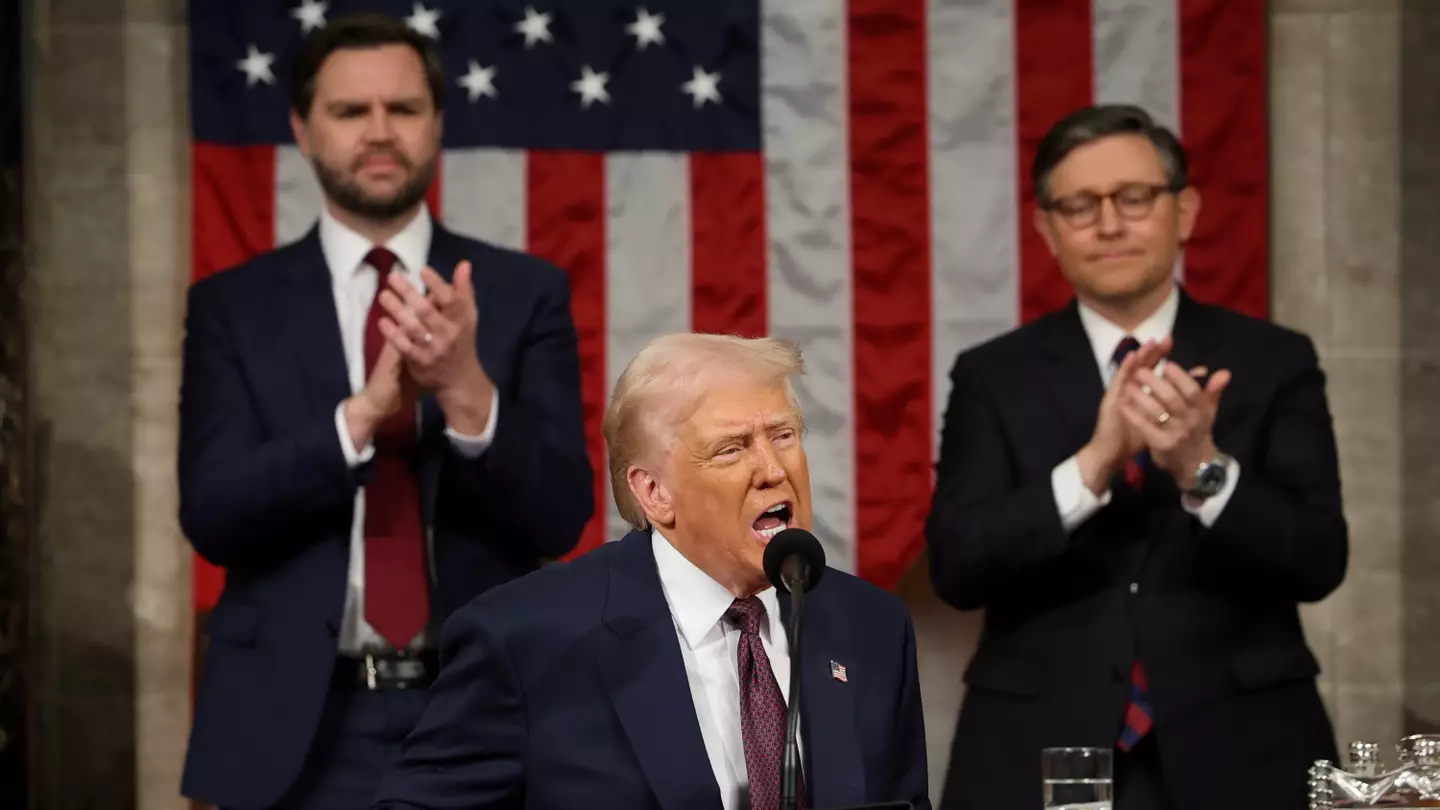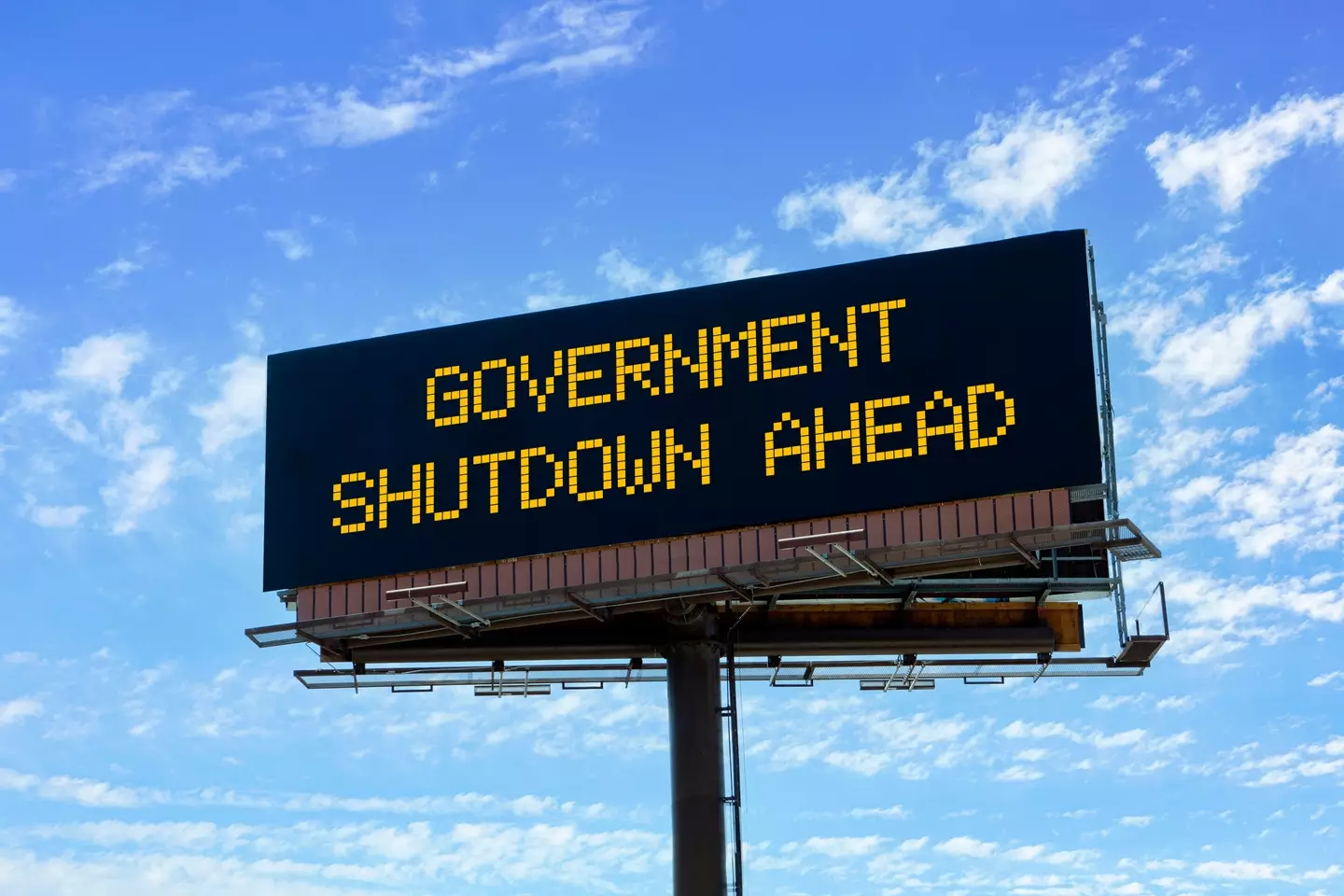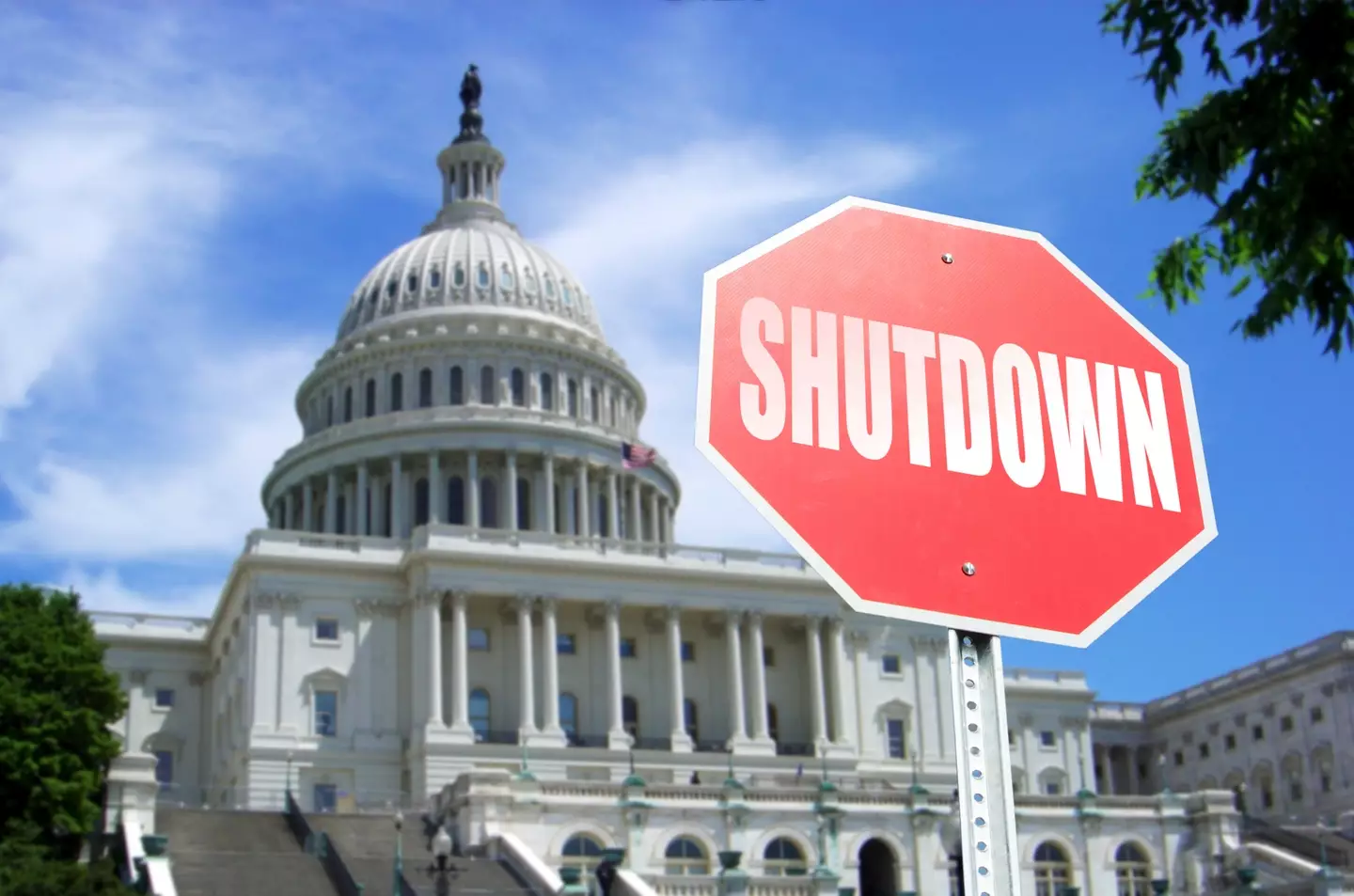
Today marks the 35th day the US government has been shut down, matching a record set during Donald Trump's first term for the longest in history.
If it continues into tomorrow (5 November), then it will officially break the record following a month-long standoff between Republicans and Democrats.
As per Reuters, this shutdown doesn't stand out just for its length, but also because of the little effort put in place to end it as the White House has been out of session since September 19, and the US President has repeatedly left Washington during this time.
At the moment, the longest shutdown on record started December 22, 2018 and spanned 35 days during Trump's first term, before coming to an end on January 25, 2019.
Advert
So, as this shutdown becomes level with the previous record-holder, let's remind ourselves of what exactly is going on, as well as what could happen if it continues.

Why has the US government shut down?
The US government officially shut down at the beginning of last month after Trump and Congress failed to agree on a funding deal by October 1.
Essentially, Republicans and Democrats kept butting heads and couldn't agree on policies to pass a bill funding government services past this date, when the previous federal budget expired.
Congress usually agree on a spending plan, which they then send to the President to be signed into law. However, the two major political parties are pushing for different things, and it looks like no one is giving in any time soon.
Democrats want to stop the Medicaid cuts and extend Affordable Care Act tax credits, while Republicans are hoping for a 'clean' funding bill without those additions.
Republicans needed 60 votes to get their spending bill through; however, they only have 53 seats in the Senate, meaning they really needed support from Democrats to pass it.
Democrats knew this and so are using their leverage to attempt to get some of their own policies passed.

What will happen if Congress surpasses the longest shutdown?
As we say, it's very likely that this government shutdown will become the longest ever recorded in US history, unless the political parties can agree on a bill by tomorrow.
If it continues, both sides lose as neither party is really getting what they want.
Federal workers are also paying the price as thousands of them are not getting paid, forcing many to turn to local food banks to feed their families, BBC News reports.
At least 670,000 government workers have been furloughed since the shutdown began, as well as 730,000 workers who are determined to be essential and are still working without pay.
When will the US government open?
To break it down, ending the shutdown requires the two parties in the Senate, Republicans and Democrats, to find a compromise that Trump will sign.
So in simple terms, it can't reopen until this happens and as of right now there's no clear end in sight.
As reported by Politico, even if an agreement quickly comes to fruition in the Senate, lawmakers aren’t scheduled to return to the capital until Monday night, and Speaker Mike Johnson reportedly told House members they will get 48 hours notice before they need to be back in Washington to vote on any bill.

Which government services have been affected?
Because funding is currently halted, all federal workers except those deemed essential are being furloughed, while those who are needed for the country to run will continue to work without pay.
They won't see any money in their pockets until after the shutdown, meaning some can simply decide not to turn up for work or call in sick, as we saw with TSA staff during the last shutdown, affecting travel.
Those considered essential include the FBI, CIA, border protection, in-hospital medical care, law enforcement, air-traffic control, the armed forces, and the National Weather Service.
While other federally-funded things, such as food assistance programmes, pre-schools, the issuing of student loans, food inspections, and operations at national parks will stop, as well as a slew of other services deemed non-essential, have stopped.
Topics: Politics, Donald Trump, US News, News, Explained